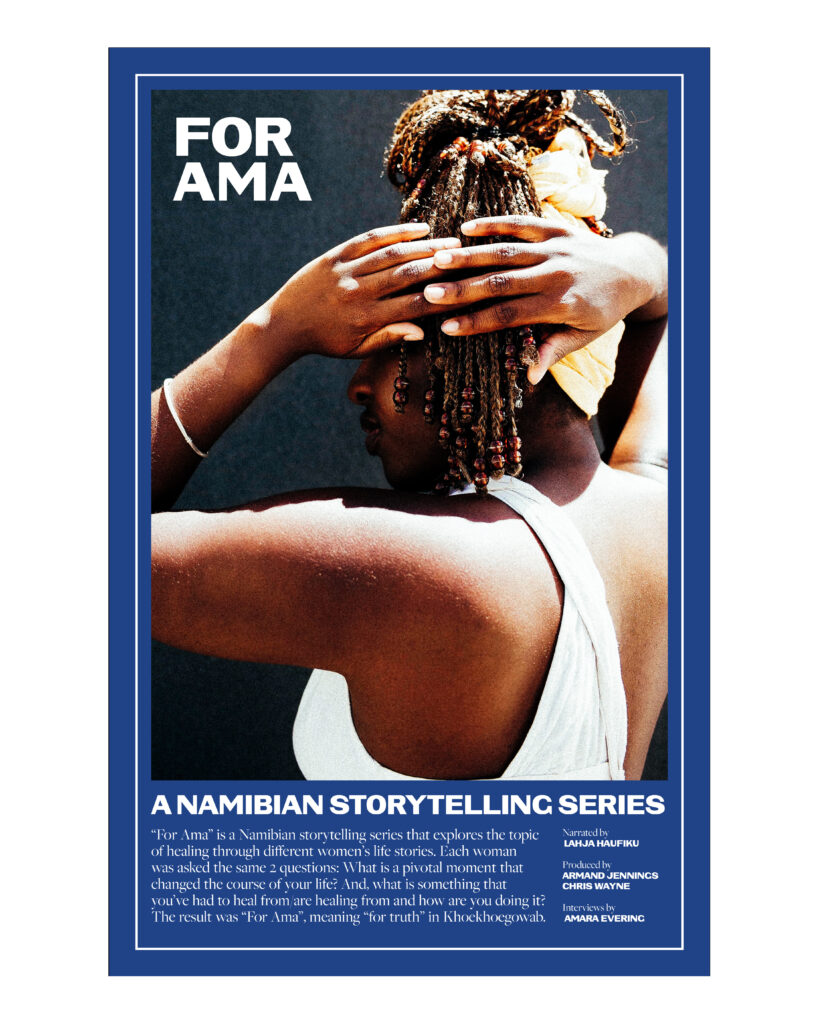
Amara Evering, a 2021 Alice Rowan Swanson fellow, has produced a series of radio programs for women in Namibia. Evering, a radio journalist and 2020 Emory University graduate, studied abroad on SIT Cameroon in 2019.
For her fellowship project, Evering collaborated with with Sister Namibia, a women’s rights organization, to produce “For Ama” (“for truth”), a radio series that explores the topic of healing through seven women’s stories. The subjects range from sexuality to eating disorders to intergenerational trauma.
Evering said she chose radio as a medium because less than half of all women in Namibia, most of them in rural areas, have no internet access.
“Without access to information, women are left unaware of available resources. So, there has been a need to communicate information to women in Namibia on a larger scale, despite infrastructural limitations,” according to Evering.
Click here to listen to the interviews.

SIT and Dickinson College are pleased to announce a new partnership for study abroad in Cameroon that brings together programs that have operated independently in Cameroon over more than three decades for nearly 2,000 students.
This new partnership acknowledges the institutions’ shared values of fair-trade learning, ethical community engagement, reciprocity, diversity, equity, inclusion and access, and our long-term commitment to Cameroon and to high-quality study abroad opportunities on the African content.
“As the largest provider of study abroad programs on the African continent, SIT is thrilled to work more closely with Dickinson College, the 2022 recipient of The Forum on Education Abroad Award for Advancing the U.N. Sustainable Development Goals through Education Abroad, and a respected leader in infusing intercultural and global experiences and learning into all areas of their campus and curriculum,” said SIT Vice President of Innovation, Strategy, and Partnerships Mory Pagel.
The new partnership creates an interdisciplinary study abroad program that offers students the opportunity to study critical issues affecting local communities and people in Cameroon, West Africa, and the Global South. Taking a decolonial approach, the program focuses on learning from local sources and accessing local knowledge structures and epistemologies. Based in the Cameroonian capital of Yaoundé, students will examine development issues in Cameroon in the context of culture, politics, and the economy.
“Bringing together the expertise of Dickinson and SIT staff in Cameroon, who are now working collaboratively, expands our network of educators, program partners, and local experts,” said Dickinson’s Associate Provost and Executive Director Samantha Brandauer at the Center for Global Study and Engagement. “This gives students more opportunities in Cameroon, expands our course offerings, and further enhances programming that centers the student experience in Cameroon.”
Students on this undergraduate semester program will select courses from an intensive French-language track for advanced French learners, or an English track for students without a French background. In addition to language courses, students will take thematic seminars on Modernization and Social Change in Cameroon, Development Studies, Research Methods and Ethics, and have the option to choose between an Independent Study Project or an internship and seminar course.
For more information about the SIT and Dickinson College in Cameroon program, please contact Mory Pagel at SIT (mory.pagel@sit.) or Samantha Brandauer ([email protected]) at Dickinson College.
Registration now open for nearly 40 SIT summer programs
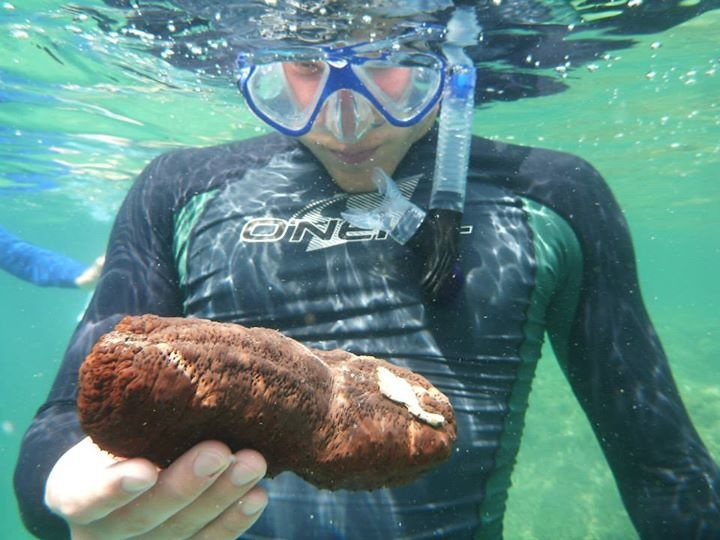
If you haven’t yet begun planning for next summer, this is a great time to start.
Registration opens Wednesday, Sept. 15, for 38 SIT summer 2022 study abroad opportunities. Included are new programs that encompass art and social change in Eastern Europe; hip-hop music and decoloniality in Senegal; climate change in Jordan; peace-building and human rights in the Balkans; human trafficking in the Netherlands; food security in Italy; epidemiology in Argentina; and urban design and social justice in Spain.
“SIT has historically expanded the frontiers of international education, creating global opportunities of learning and cultural immersion for thousands of students a year across all continents,” notes SIT Dean of Faculty Dr. Said Graiouid. “The summer 2022 portfolio maintains that tradition with programs that focus on social, political, economic and scientific arenas and in diverse historical periods and geographical settings.”
Students are challenged to embrace a human-centered, comparative approach …”
SIT’s immersive programs next summer will take place in sub-Saharan Africa, the Asia Pacific region, Europe, and the Middle East/North Africa.
SIT will also once again offer virtual internships that allow undergraduates to build invaluable professional and academic experience on a range of subjects. These include two Jordan internships, in counseling and humanitarian action, and in community empowerment and climate change; women’s rights in Cameroon; education and social change in Chile; sustainability in India; public health in Kenya; human rights in Serbia; diplomacy and international relations in South Africa; and development and gender in Vietnam.
Regardless of which program they choose, says Graiouid, “students are challenged to embrace a human-centered, comparative approach in which they engage with resources and the competencies needed for the development of the skills of critical literacy, intercultural communication, and intellectual polity.”
Alix Swann, an international studies major at Spelman College, did a virtual internship on the Chile program in fall 2020 in which she worked with a women’s collective that fights street sexual harassment. Alix’s task was to teach about U.S. laws and policies on sexual harassment in the workplace and digital sexual harassment.
“Before this internship, my viewpoint was solely from a U.S. perspective, and I now no longer try to relate everything to the U.S.,” she says.
Yardena Meyerhoff, a physics and astronomy major at Whitman College, also did the Chile program, interning with the Colegio de Profesoras y Profesores de Chile to conduct a comparative analysis of Chile’s standardized testing system and the effect of standardized testing on student learning and development.
“My meetings with my internship advisor were very organic and natural and would often go in fascinating and sometimes unexpected directions. Our conversations made me think about my own experiences with education growing up in Minnesota, and how education systems around the world suffer from similar inequalities,” Yardena recalls.
SIT’s virtual language programs have also been popular during the pandemic. Language options for summer 2022 include all levels of Arabic (from Jordan); Swahili (Kenya); Hindi (India); Nepali and Tibetan (Nepal).
New SIT programs for summer 2022 are:

Argentina: Epidemiology and Healthcare Management—Through SIT’s close partnership with ISALUD, the nation’s top health university and think tank, examine urban epidemiology, health inequalities, and the challenges of managing health services and policies to expand access to healthcare.
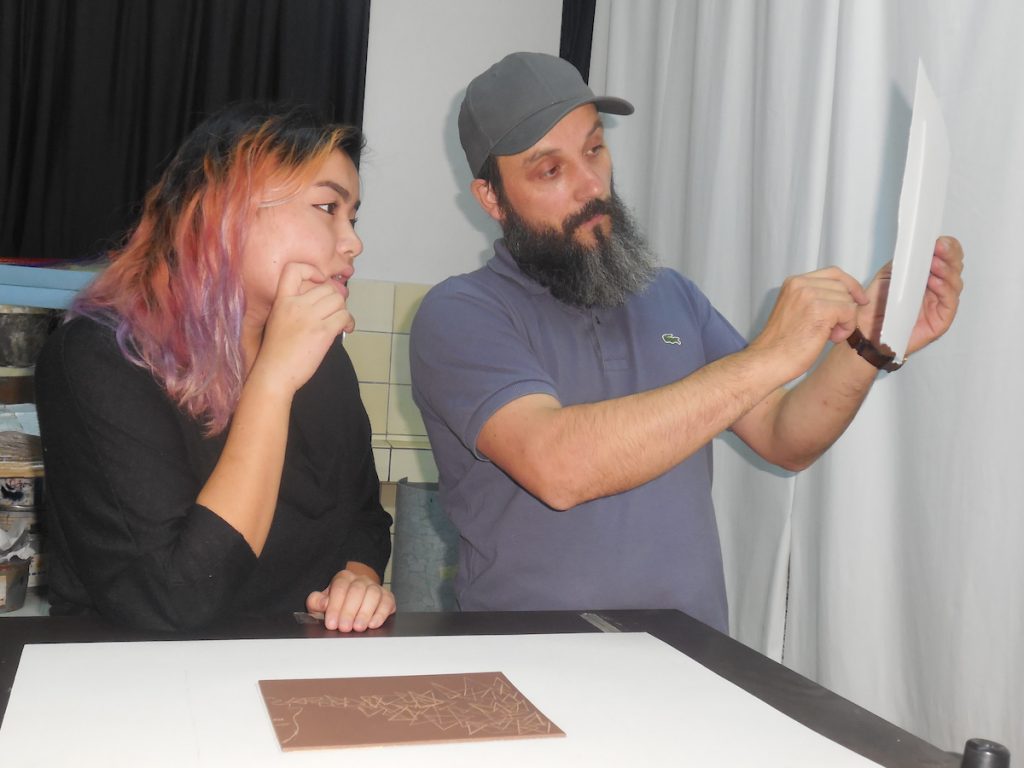
Czech Republic: Studio Arts—Explore photography, creative writing, or contemporary dance through an intensive arts workshop while examining debates around art, politics, and society.

Italy: Food Security and Nutrition—Delve into sustainable agriculture on a Tuscan estate and explore how international experts are confronting challenges of food security, nutrition, and health.
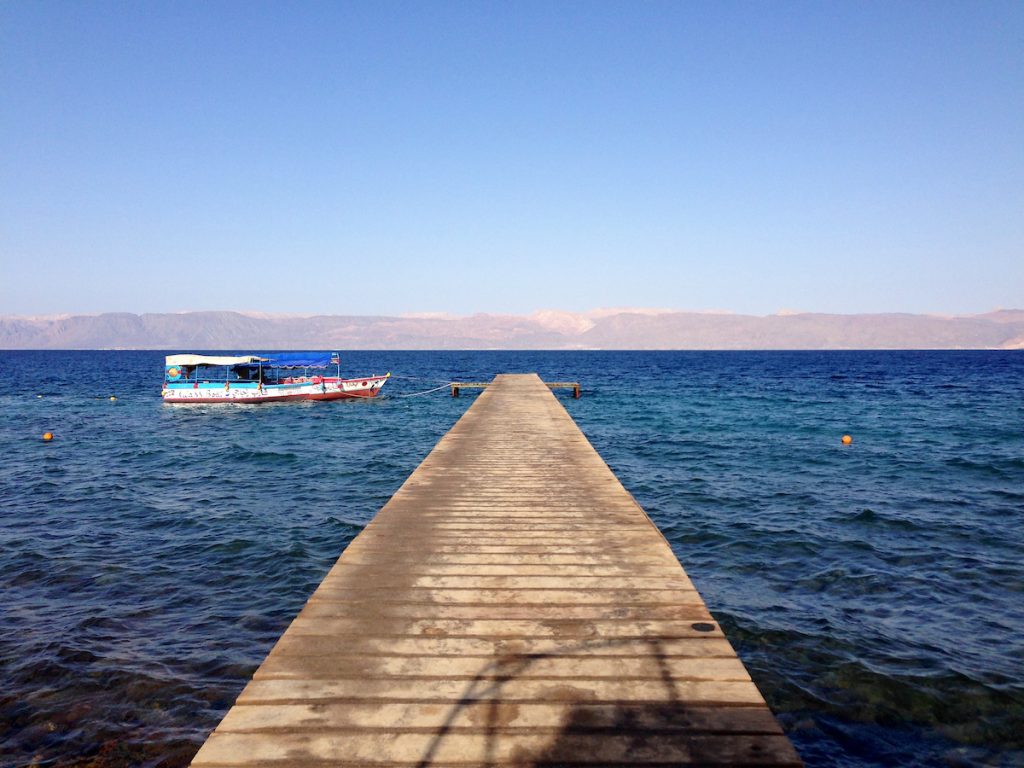
Jordan: Community Empowerment and Climate Change Internship—Gain professional experience with a UN or government agency or NGO working with youth and vulnerable groups on community empowerment and environmental sustainability.

Netherlands: Human Trafficking, Sex Trade, and Modern Slavery in Europe—Examine diverse areas of human trafficking and the sex trade, including the relationship between sex workers and broader societies.
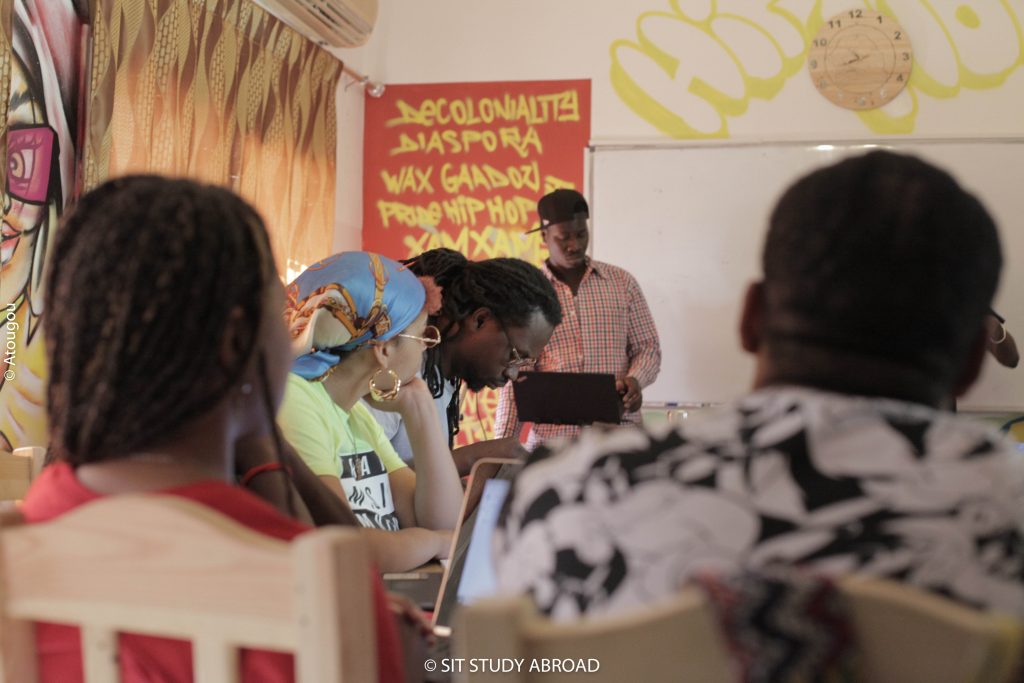
Senegal: Hip-Hop, Resilience, and Black Struggles—Examine how young Africans use hip-hop to question traditional representations of Africa, imagine the continent’s future, and raise consciousness of globalization and (in)equality.

Serbia: Transitional Justice, Human Rights, and Memory Activism Internship—Look at justice, human rights, and memory in post-conflict societies and contribute to the work of an important organization with a meaningful internship.

Spain: Sustainable Urban Development and Social Justice—Explore the approaches Spanish cities are taking to pursue sustainable urban development within a social justice framework.

Switzerland: Global Health and Development Policy—Compare public health systems within the framework of international and sustainable development, humanitarian action, human rights, and social justice.
For more information about these and all SIT Study Abroad programs, visit www.studyabroad.sit.edu.
Dr. Cheikh Thiam will lead SIT’s large and diverse portfolio of sub-Sahara programs
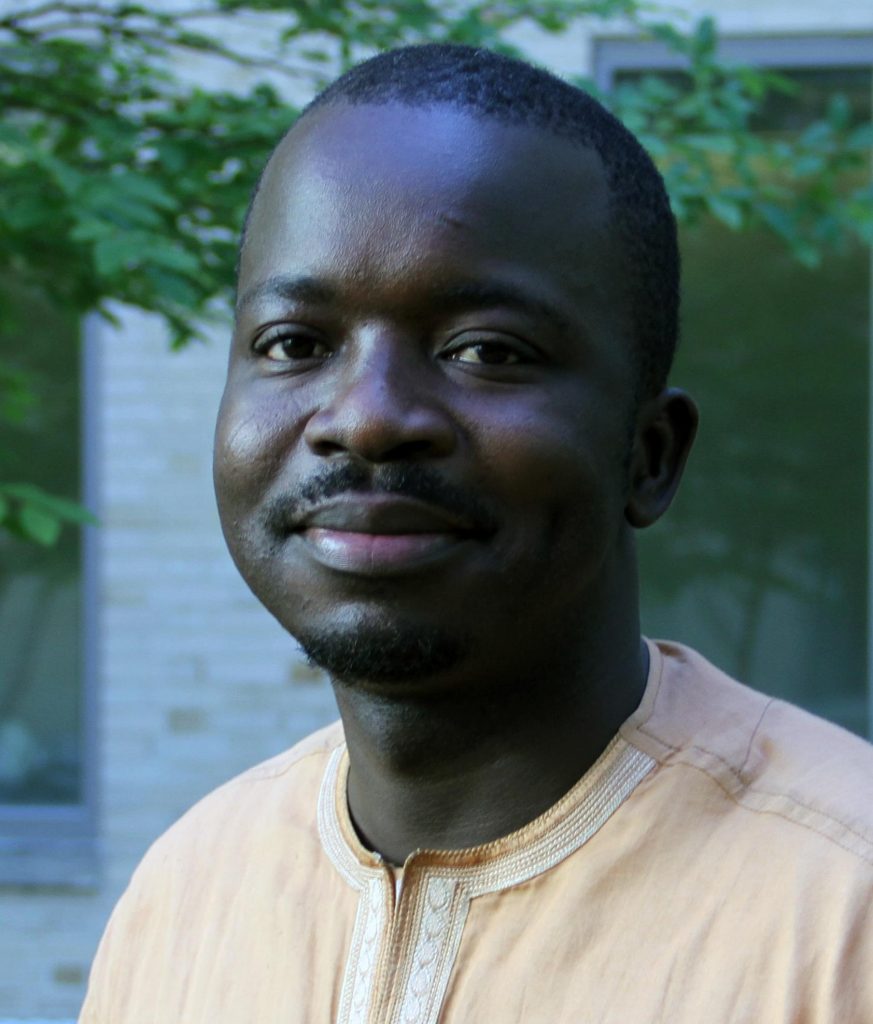
BRATTLEBORO, Vermont – Dr. Cheikh Thiam, academic director for SIT Study Abroad in Senegal, will become SIT academic dean for Africa South of the Sahara starting Jan. 1, 2020, School for International Training announced today.
Thiam co-leads SIT Study Abroad programs in Senegal focused on global security and religious pluralism, and designed a pioneering undergraduate program that explores how hip-hop artists and cultural influencers are redefining Africa’s future. “I am looking forward to taking on this expanded role at SIT, while drawing from my research examining collective imaginations of being and identity in Africa and the African diaspora in the colonial and postcolonial era,” said Thiam, who has directed study abroad programs in Senegal for the past 10 years.
As academic dean, Thiam will lead one of the broadest portfolios of programs in Africa of any U.S. institution. SIT’s multidisciplinary portfolio of accredited undergraduate programs covers nine sub-Saharan countries and encompasses subjects such as biodiversity and wildlife management, multiculturalism and human rights, health policy and social transformation, and even offers a journalism program. Several of SIT’s Global MA programs also have components based in Africa, including climate change in Tanzania, humanitarian assistance in Uganda, global health in Kenya, and international diplomacy in South Africa.
Cheikh’s outstanding scholarship and network of relationships across Africa and the United States, combined with his passion for student-centered study abroad classrooms, make him an outstanding addition to our leadership team.
— SIT President Dr. Sophia Howlett
Thiam brings to his new role a strong background in U.S. higher education. He has an MA and a PhD in comparative literature from Binghamton University, an MA in French from the University of Provence in Aix-en-Provence, as well as a BA from Université Cheikh Anta Diop in Dakar. He served as associate professor of African American studies, African studies, and French at The Ohio State University. He is the author of “Return to the Kingdom of Childhood: Re-envisioning the Legacy and Philosophical Relevance of Negritude,” published by Ohio State University Press in 2014.
Thiam also was the editor of Negritude Reloaded, a special issue of Journal on African Philosophy, an associate editor of Research in African Literatures, and has published widely in literature and philosophy journals such as Ethiopiques, West Africa Review, La Revue Africaine, La Revue du Graat, French Review, Research in African Literature, Dalhousie French Review, and Journal on African Philosophy. He recently completed a second book manuscript, “Epistemologies from the South: Negritude, Modernity, and the Idea of Africa.”
In announcing his appointment, SIT President Dr. Sophia Howlett said, “Cheikh’s outstanding scholarship and network of relationships across Africa and the United States, combined with his passion for student-centered study abroad classrooms, make him an exceptional addition to our leadership team.”
Thiam will join Howlett’s Council of Deans, a group that oversees SIT’s undergraduate programs, the SIT Graduate Institute, and SIT’s stable of more than 80 study abroad programs in Asia and the Pacific, Europe and the Middle East, Latin America, and the International Honors Program.
Thiam succeeds Dr. Daniel Lumonya, who has served as academic dean for the region since August 2015. Prior to that time, Lumonya was SIT academic director in Uganda. Lumonya completed his PhD in development sociology at Cornell University. “I have had the chance to work with Cheikh on our evolving programs in the region and I welcome the depth of experience he brings to this position,” Lumonya said.
Lumonya is leaving to pursue a career in research, teaching and community service from his country, Uganda. “I want to thank Dan for his dedicated work and stellar contributions to SIT, both as an academic director and dean,” Howlett said. “We will all miss him.”
Samantha Trotter, an anthropology major at Oregon State University, spent fall 2018 studying in Cameroon, which is known as “Africa in Miniature” for its tremendous diversity. She documented her study abroad experience through the lens of her new camera and shared some thoughts and images from her experience on Cameroon: Development and Social Change .
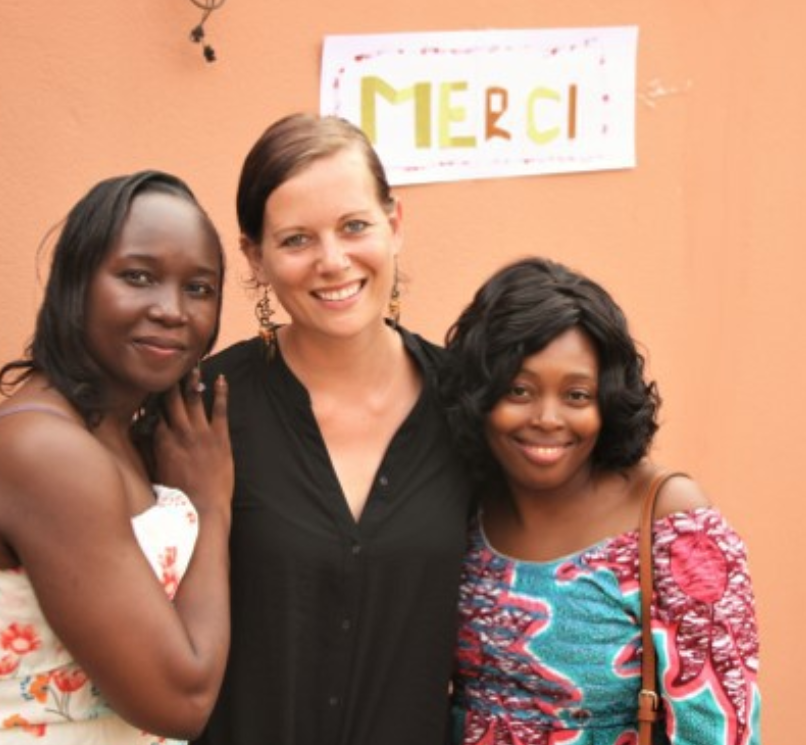
I choose to study with SIT in Cameroon because I wanted a more hands-on, in-person experience versus just reading or being taught about a culture or society in a classroom.
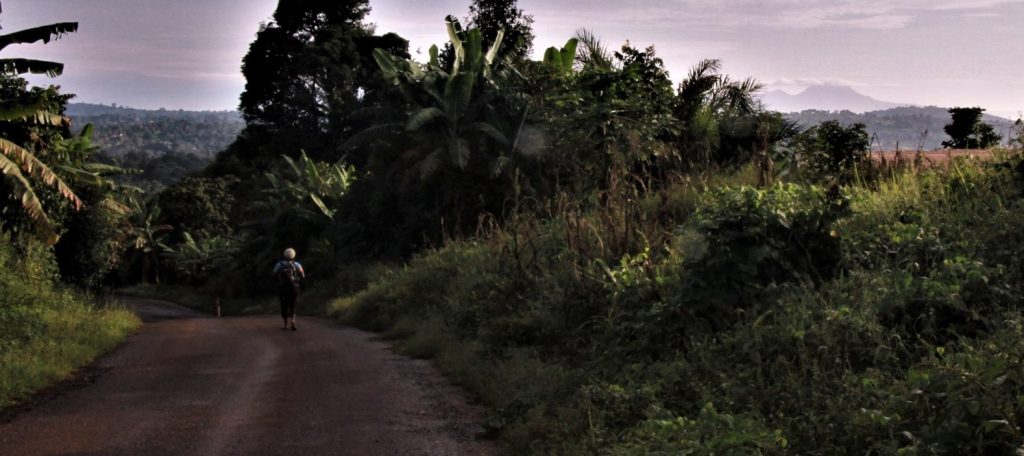
I really enjoyed the excursions, the guest speakers and the classroom discussions. One of my favorite activities included a boat ride in a hollowed-out tree through a river and a 10-minute hike through the forest to observe the oldest and largest tree in Cameroon.
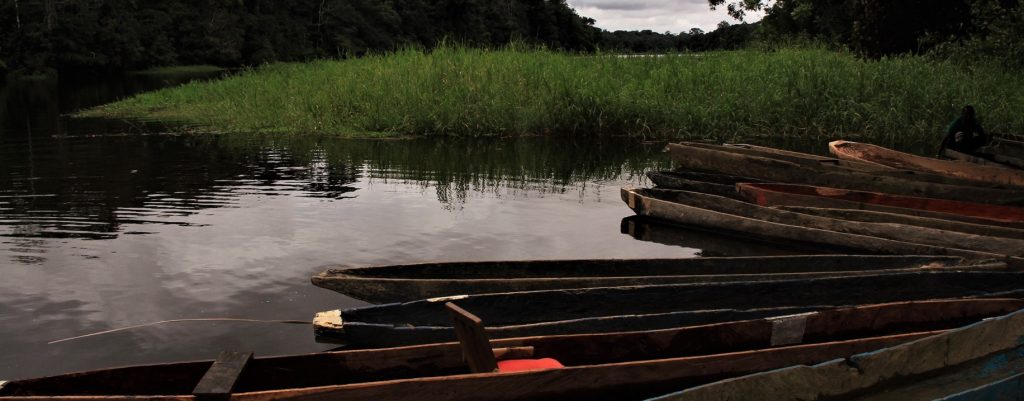
My semester abroad made me think a lot about politics and the economy. We were able to meet people who had limited resources but found ways to make a difference in their communities and country. It gives me hope and inspiration and the desire to take more action within my own community and country.
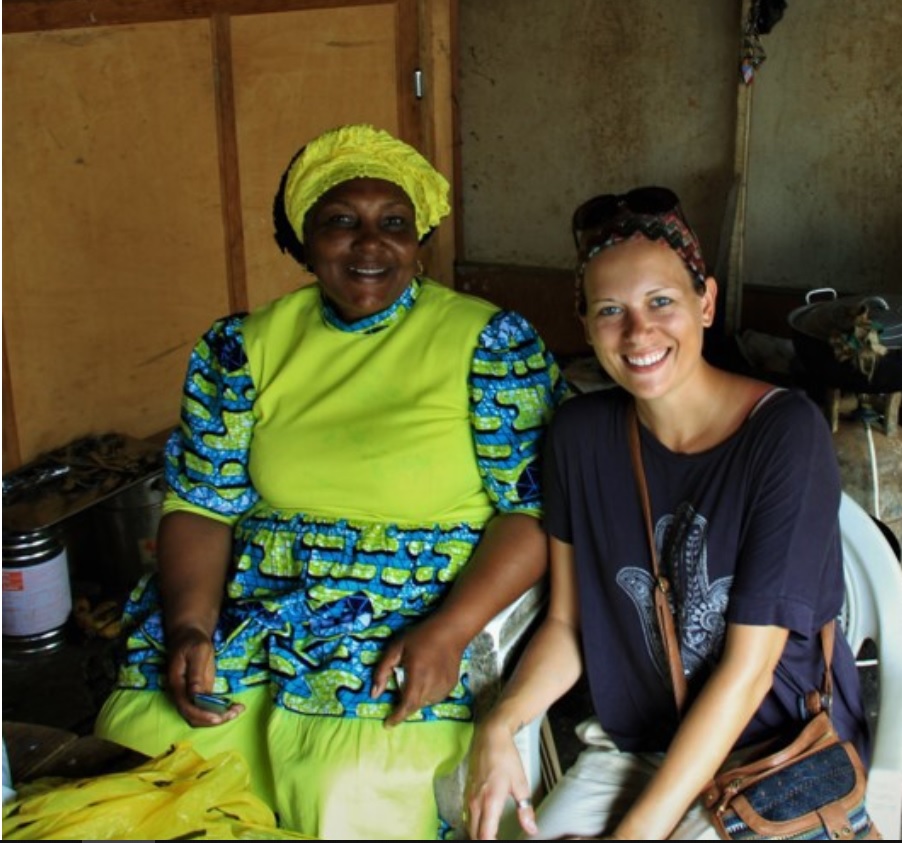
I was truly grateful for my host family’s hospitality and kindness. They were very patient and accommodating and The food they made was amazing. My family always tried to include me in their activities; I went to a local market with my ‘brother,’ visited my family’s second house in their village, attended church with my ‘mother’ and helped my ‘sister’ on the family farm.
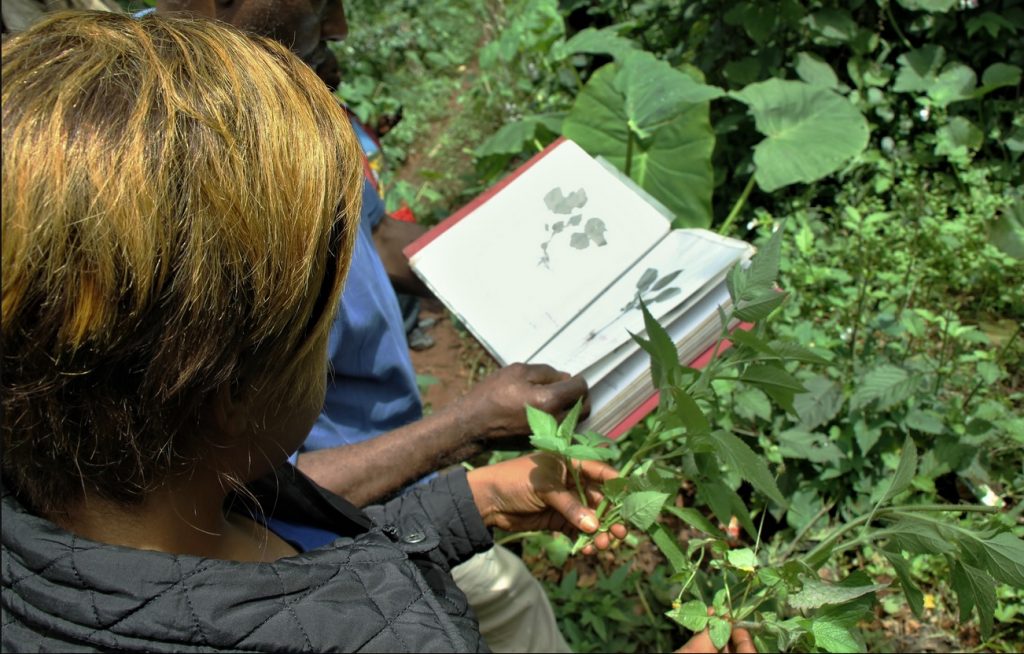
The program really helped break down the research process. It gave me the skills, confidence, and desire to interview and observe people. Before SIT, I feared writing because I felt that everything had to be perfect but I learned that is impossible. You must be open to changes and difficulties and include those experiences in your paper. Research is continuous. I hope to one day return to the country and continue my studies.
Click here to see more from Samantha’s journey.
Nathalie is from the North Province of Cameroon. She has been with SIT since 2008, where she works on the homestay program and service component for students. Her responsibilities include selecting families, giving an orientation to students and homestay families, evaluating students’ adaptation in their family as well as families’ ability to offer a positive cultural and learning experience to students. Nathalie organizes activities for students and is the person primarily responsible for health care support. In her free time, she enjoys listening to music.
SIT Study Abroad Programs
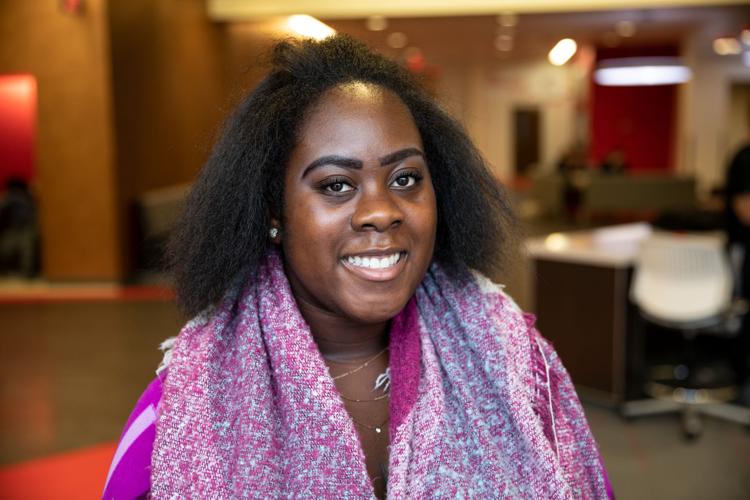
This article first appeared in The Daily Nebraskan, the University of Nebraska-Lincoln’s independent student newspaper. It is reprinted here with permission.
— Ana Chincoa
Chelsea Akyeampong, a junior global studies and political science double major at the University of Nebraska-Lincoln, found cultural challenges and lessons in her study abroad trip to Cameroon.
Akyeampong found the School for International Training’s program Cameroon: Development and Social Change after reading an article on Facebook.
The semester-long program took place in cities throughout France and Cameroon in fall 2018.
Akyeampong said she became interested in the program after reading the article and decided to meet with her global studies advisor, Emira Ibrahimpasic, to discuss studying abroad. She had to get the program approved by UNL since no one had done it before her.
An internship … abroad allows students to learn by doing. What is even more special about this opportunity is that she was able to improve her French language skills and learn a local dialect.
— Emira Ibrahimpasic, Global Studies Advisor
Ibrahimpasic, professor and special assistant director for global studies, said internships are an important part of the college experience. She said employers are looking for college graduates who not only have the required education but relevant volunteer or internship experiences.
“An internship … abroad allows students to learn by doing,” she said in an email. “What is even more special about this opportunity is that she was able to improve her French language skills and learn a local dialect.”
Ibrahimpasic said Akyeampong is one of the most inspiring students she’s worked with since starting in the global studies department.
“Working with her on selecting this particular program was easy because she knew exactly what she wanted to get out of this experience,” she said
Although Akyeampong was the only UNL student who joined the program, she met many students from other institutions around the country.
She said Yaoundé, Cameroon’s capital, was where she took classes and spent most of her time.
In Kribi, she learned about indigenous people like the Bagyeli who have been marginalized by foreign investors, Cameroon’s government and other groups, like the Bantus.
Akyeampong said when she spent time in the town of Batoufam, she took classes at the king’s palace and experienced village life. She also learned about the Bamileké, a people group native to Cameroon who have retained their culture despite globalization, modernization and colonization.
After crossing the Mediterranean, Akyeampong spent time in Paris and learned about Cameroonian immigration to France, which held the northern portion of Cameroon as a colony until 1960.
Besides studying, Akyeampong said she did an internship in Bertoua with a refugee organization called RESPECT Cameroon, where she taught English to students, worked on fundraising projects and translated documents from French to English.
During her internship, her biggest challenge was public speaking. She said she was scared to teach English during her first week of teaching.
“I kind of learned that I should not be scared, but they’re here to learn English and I have the stuff to teach them,” she said.
Akyeampong said technology in Cameroon is expensive and not as reliable as in the U.S. When her laptop stopped working, the price of getting a technician was so high and she just bought a new laptop.
“The biggest lesson I’ve learned is you can’t compare both places because they are totally different people and culture,” she said.
She said her experience was a process and not just about getting an A. She said people preparing to study abroad should be prepared to return more mature and open to challenges.
“That’s how you grow,” she said.
